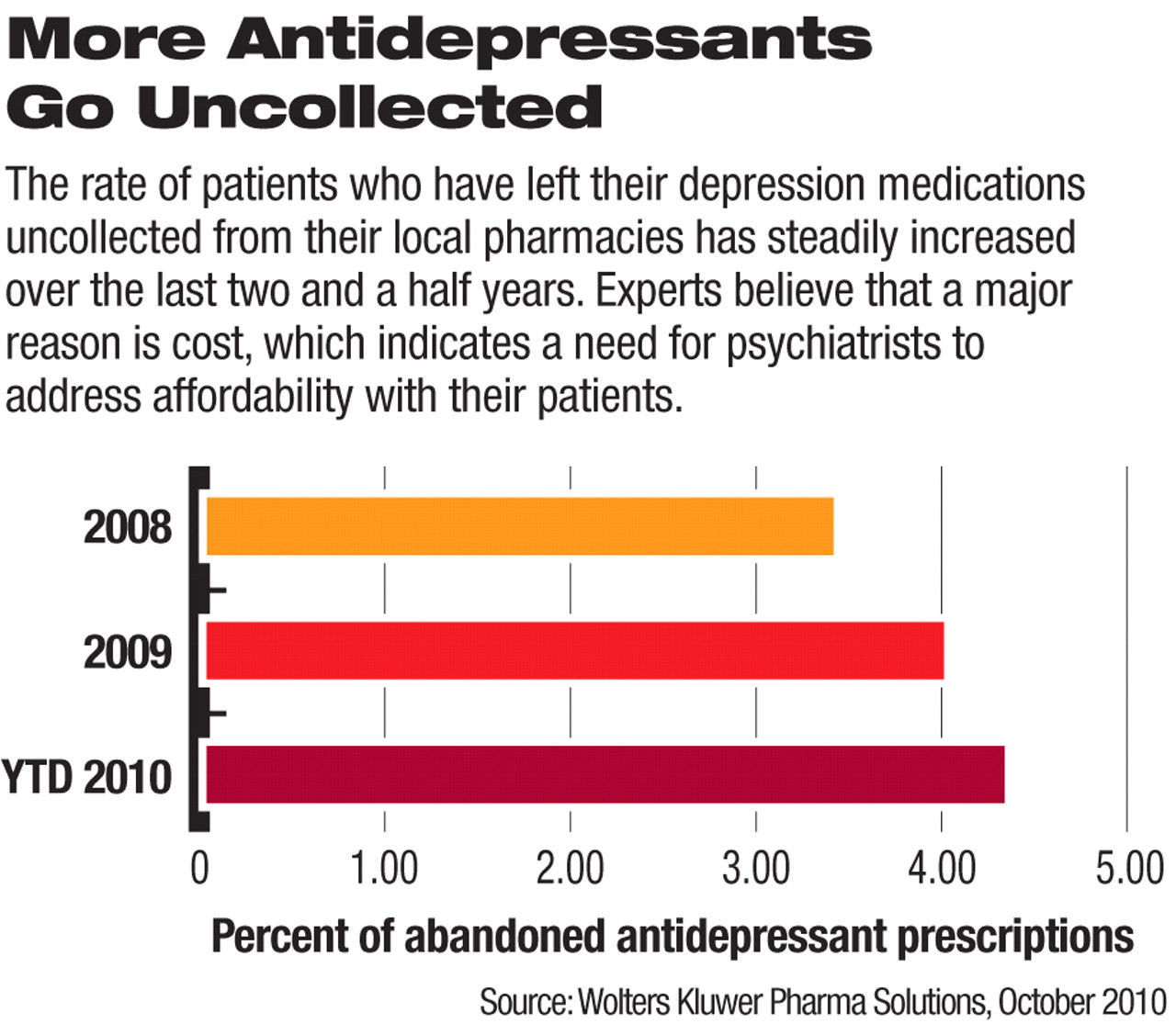Patients Abandon Antidepressants, Deterred by High Costs
Abstract
An increasing number of insured patients with diagnosed depression are leaving their prescriptions unretrieved at the pharmacy counter, according to a recent analysis.
A review of private-insurance claims data released to Psychiatric News showed that so-called abandonment increased from a little more than 3 percent of all antidepressant prescriptions (brand name and generic) tracked in 2008 to more than 4 percent of such prescriptions in the first half of this year. The data were collected by Wolters Kluwer Pharma Solutions, a health care data company.
The rising rate of antidepressant abandonment came even as the total number of prescriptions written for antidepressants increased from 2008 to 2009 among private-insurance beneficiaries by 2.9 percent, to a total of about 240,000 new antidepressant prescriptions. Data were unavailable for the first half of 2010.

Among all categories of brand-name drugs only, the rate of abandonment for new prescriptions increased from 6.5 percent at the beginning of 2008 to nearly 10 percent in the second quarter of 2010.
Data on abandonment rates were derived from an analysis of 80 million claims that pharmacies submit each month for payment, or about 40 percent of the total market. Wolters Kluwer collects the data from more than 24,000 independent and chain pharmacies to help pharmaceutical manufacturers assess the reasons for lost sales.
Patients' failure to pick up their prescribed antidepressants is being driven, in part, by rising costs for the medications, according to Wolters Kluwer officials and a mental health researcher.
The data on abandoned antidepressant rates were similar to those for unfilled prescriptions reported by Medicare beneficiaries in a 2008 study. Jae Kennedy, Ph.D., an associate professor in the Department of Health Policy and Administration at Washington State University, and colleagues found that more than 5 percent of prescriptions that beneficiaries reported not filling were for antidepressants.
“Our research shows that an increasing number of patients in the United States are unable to fill their prescriptions due to medication cost, including critical prescriptions for chronic-disease management like antidepressants,” Kennedy told Psychiatric News.
Jesse Wright, M.D., Ph.D., a professor of psychiatry and behavioral sciences at the University of Louisville, said in an interview that because of the large number of low-cost antidepressant generics now available, cost should be less of a factor in whether patients decide to fill their prescriptions. He advised clinicians to raise the issue of affordability with their patients and prescribe a generic substitute when suitable.
“I wouldn't have been surprised if the [Wolters] data had found higher [abandonment] rates,” he said.
Kennedy gave similar advice to Wright's, noting that clinicians should routinely ask patients about their prescription insurance coverage. If patients cannot afford the medication, psychiatrists can suggest alternatives for obtaining it, such as programs offered by pharmaceutical manufacturers that provide medications for free or at low cost.
The 2008 Kennedy study, “Unfilled Prescriptions of Medicare Beneficiaries: Prevalence, Reasons, and Types of Medicines Prescribed,” is posted at <http://www.amcp.org/data/jmcp/JMCPMaga_553-560.pdf>.



